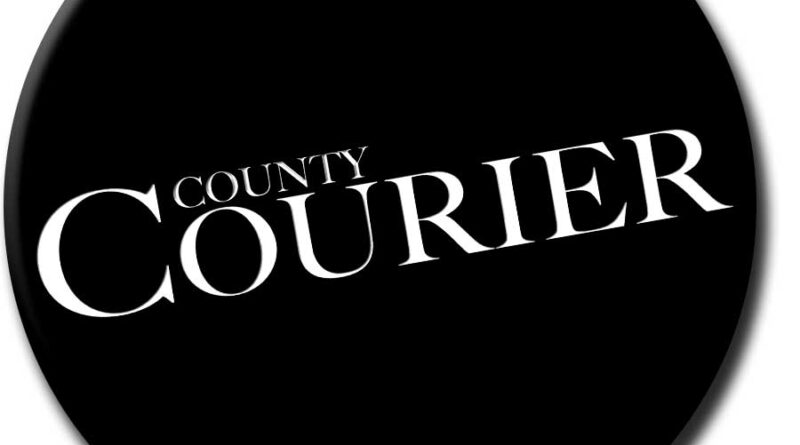REMOVING THE ‘P’
By Natalie Jackson
Machia and Sons Dairy LLC has been working for years to help our community in any way, shape or form that they can.
Heather Darby, an Agronomy Specialist, and Extension Associate Professor for the UVM Extension Program says she has been working with the Machia family for as long as she has been working with the UVM Extension Program, a total of about 14 years. Throughout her time working with the Machia family, Darby says over time that they have implemented new innovative practices on the Machia family farm that have both helped their farm, local water quality, and the community altogether.
The most recent practice at the Machia farm began in the works about three years ago. In the past eight months or so, Ron and Cheryl Machia, along with their two sons, Chad and Dustin, began using a centrifuge that is designed to eliminate the amount of phosphorus in their cow manure by removing a portion of it. According to Dustin Machia, the family actually began working on the centrifuge about a year before starting to use it. Right now, the Machia Farm is the only farm in Vermont that uses the centrifuge.
Machia and Sons Dairy LLC was working on their separation system when Native Energy confronted them about the centrifuge.
Denise Smith, director of the Friends of Northern Lake Champlain, says their organization has been pleased with the Machia Family’s work. The work that the Machia’s have done has helped the group with their three main topics: advocacy, education, and innovation.
Together, both the Friends of Northern Lake Champlain and the UVM Extension Program, have been collecting data from the Machia’s experiments that will help educate Vermont and work with other local farms. Farmers can reach out to the two organizations to learn more information and receive help on evaluating their practices.
The centrifuge that Machia and Sons Dairy LLC uses is about four feet by seven feet.
The centrifuge works in a centrifugal way. Dustin Machia says “the manure comes into a bowl. The bowl spins at 3,600 RPMs and all the phosphorus sticks to the outside from the centrifugal force that pulls it to the outside of the bowl. There’s an auger inside that removes the phosphorus from the bowl.”
The machine is constantly running on the Machia farm. It is just big enough to take in all of their manure.
Even though the machine doesn’t remove all of the phosphorus, a good chunk of it is extracted. Depending upon who one asks, the percentage ranges a little bit. Dustin claims 40% of the phosphorus is removed after using the centrifuge.
After collecting some data, Darby claims the centrifuge has made a huge improvement in the phosphorus removal dilemma. According to Darby, the data they collected shows the centrifuge removes over half of the phosphorus.
“Now that doesn’t mean it disappears, it just means that they have an opportunity to manage where they put phosphorus,” says Darby.
Although the centrifuge seems to be working well for the Machia Farm, Dustin says he does not expect every farm in Vermont to end up having one.
“It will work if you have too much phosphorus on your farm with not enough land to spread it on,” Dustin claims. “It’s a good way to remove unneeded phosphorus.”
The Machia Farm claims this was never a huge issue for them, but when they heard about the pollution in Lake Champlain, they wanted to do anything they could to help out.
Dustin states, “You can only spread so much phosphorus per acre depending on your nutrient management plan and your crop uptake… If you put a centrifuge into that farm, then it will take excess phosphorus out so that they can still get rid of their manure on their crop land.”
Because this is all so new, many Vermont farmers are not even aware of the wonders the centrifuge is creating. If more and more farms begin to use the system, the issues regarding phosphorus pollution in the lake will be able to diminish.
The centrifuge itself is very costly because of the motors that come with it. However, farmers that are interested in the machine are encouraged to apply for grants. The Machia’s also received financial help for this experiment from many companies. To name a couple, Ben & Jerry’s and Green Mountain Power were tremendous supporters of the family.
Chad Machia says just in the past two years, they have spent almost a million and a half dollars on projects trying to clean up Lake Champlain.
He says, “We’re doing every possible thing we can to clean up Lake Champlain on our farm. As far as other farms using one, it will still take time, but it will be a serious improvement.”
The Machia Family is doing as much as they can to clean up Lake Champlain and protect it for the future generations that will grow up around the lake. With this in mind, many other farmers have become interested in the centrifuge and phosphorus separation system.
In fact, on Wednesday the UVM Extension Program and Friends of Northern Lake Champlain teamed up to create a field day. They supplied busing for local farmers to take a trip to the Machia farm and learn about the system and see for themselves the differences that it is making. According to Smith, they were expecting about 50 to 60 people to show up for the field day.



